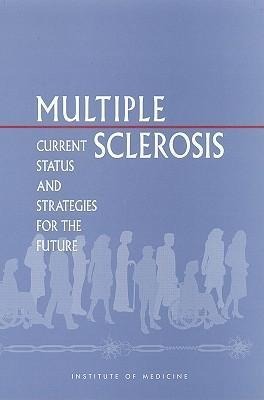
Zustellung: Di, 05.08. - Mo, 11.08.
Versand in 3-4 Wochen
VersandkostenfreiMultiple sclerosis is a chronic and often disabling disease of the nervous system, affecting about 1 million people worldwide. Even though it has been known for over a hundred years, no cause or cure has yet been discovered -- but now there is hope. New therapies have been shown to slow the disease progress in some patients, and the pace of discoveries about the cellular machinery of the brain and spinal cord has accelerated.This book presents a comprehensive overview of multiple sclerosis today, as researchers seek to understand its processes, develop therapies that will slow or halt the disease and perhaps repair damage, offer relief for specific symptoms, and improve the abilities of MS patients to function in their daily lives.The panel reviews existing knowledge and identifies key research questions, focusing on:
-- Research strategies that have the greatest potential to understand the biological mechanisms of recovery and to translate findings into specific strategies for therapy.
-- How people adapt to MS and the research needed to improve the lives of people with MS.
-- Management of disease symptoms (cognitive impairment, depression, spasticity, vision problems, and others).The committee also discusses ways to build and financially support the MS research enterprise, including a look at challenges inherent in designing clinical trails. This book will be important to MS researchers, research funders, health care advocates for MS research and treatment, and interested patients and their families.
-- Research strategies that have the greatest potential to understand the biological mechanisms of recovery and to translate findings into specific strategies for therapy.
-- How people adapt to MS and the research needed to improve the lives of people with MS.
-- Management of disease symptoms (cognitive impairment, depression, spasticity, vision problems, and others).The committee also discusses ways to build and financially support the MS research enterprise, including a look at challenges inherent in designing clinical trails. This book will be important to MS researchers, research funders, health care advocates for MS research and treatment, and interested patients and their families.
Inhaltsverzeichnis
EXECUTIVE SUMMARY INTRODUCTION The U.S. National Multiple Sclerosis Society Recent Advances in MS Origin of the Study Previous Reviews of MS Research Programs The IOM Committee and Its Mandate How the Committee Carried Out its Task Organization of the Report References CLINICAL AND BIOLOGICAL FEATURES The Clinical Picture: Symptoms, Disease Course, Variation, And Diagosis Underlying Disease Mechanisms Animal Models of MS References CHARACTERISTICS AND MANAGEMENT OF MAJOR SYMPTOMS Cognitive Impairment Depression Spasticity and Weakness Ataxia and Tremor Bladder and Bowel Dysfunctions Visual Disturbances Fatigue Sexual Dysfunction Pain References DISEASE MANAGEMENT AND MEASUREMENT Living with MS Measuring Functional Status and Quality of Life Assistance Information and Communication Health Care References STRATEGIES FOR FUTURE RESEARCH ON DISEASE MECHANISMS Technologies and Research Strategies References FUTURE STRATEGIES FOR THERAPIES Strategies for Disease Modification Challenges in MS Clinical Trials Shared Resources References BUILDING AND SUPPORTING THE RESEARCH ENTERPRISE Research Funding Human Resources Infrastructure Clinical Trials Biotechnology and Pharmaceutical Firms Health Care Research Role of Voluntary Health Organizations References RECOMMENDATIONS Etiology and Pathogenesis Tools for Research and Diagnosis Therapeutics Health Status and Quality of Life Research Enterprise References APPENDIXES A Committee and Staff Biographies B List of Expert Consultants C Workshop Agendas D Kurtzke's Expanded Disability Status Scale E Drugs Used in the Treatment of MS F U.S. Social Security Administration's Criteria for Qualifying as Disabled from MS G Treatments That Have Been Claimed to Be of Benefit in MS INDEX
Produktdetails
Erscheinungsdatum
10. August 2001
Sprache
englisch
Seitenanzahl
456
Autor/Autorin
Institute of Medicine, Board on Neuroscience and Behavioral Health, Committee on Multiple Sclerosis Current Status and Strategies for the Future
Herausgegeben von
Richard B Johnston, Janet E Joy
Verlag/Hersteller
Produktart
gebunden
Gewicht
848 g
Größe (L/B/H)
223/145/83 mm
ISBN
9780309072854
Bewertungen
0 Bewertungen
Es wurden noch keine Bewertungen abgegeben. Schreiben Sie die erste Bewertung zu "Multiple Sclerosis" und helfen Sie damit anderen bei der Kaufentscheidung.







